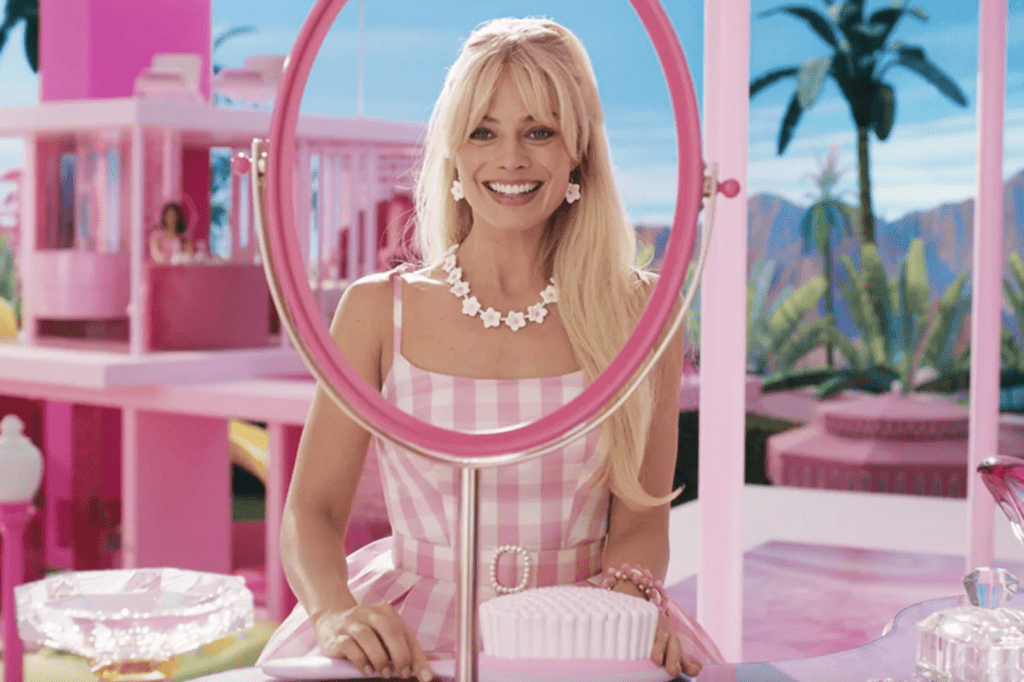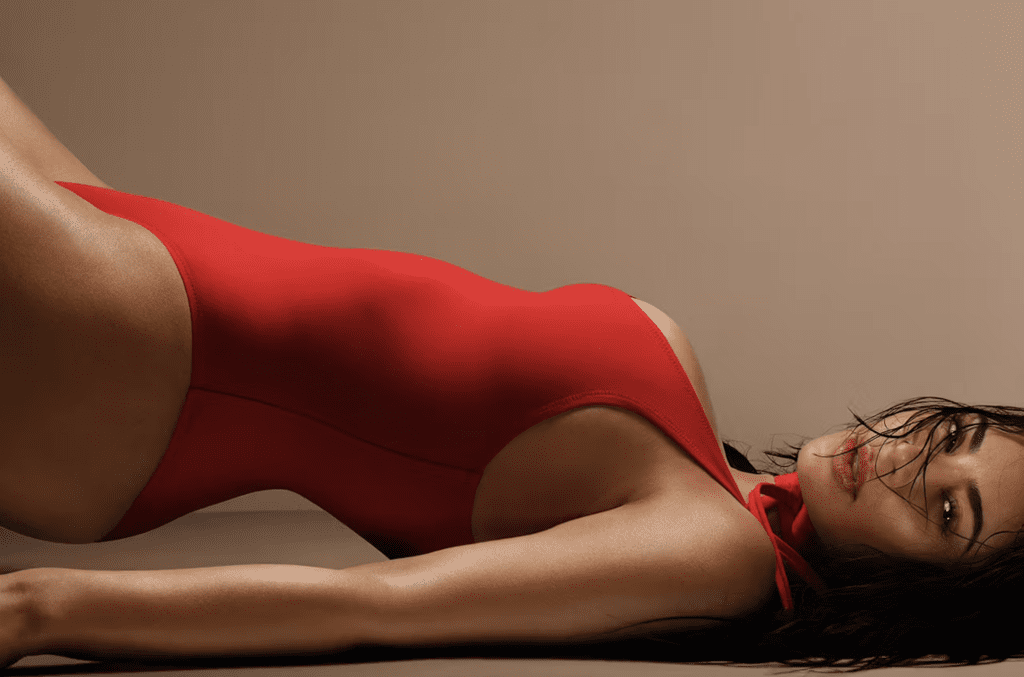Unless you’ve been living in a fantasy world, you have probably heard that the Barbie movie is being released this week. There has been chatter across the internet and on social media – ranging from conversations about Mattel’s many Barbie-centric collaborations to whether the film will feature Aqua’s original “Barbie Girl” song. It appears that fans and consumers not only want to know where they can get Barbie brand roller skates but they are also interested in what the Aqua lawsuit means for the film’s soundtrack.
The fascination with all things Brand Barbie is understandable, and in fact, consumer perception is key to trademark law. In any event, the history of Mattel’s fierce protection of the intellectual property in its world of Barbie collaborations, including working with former adversaries, provides for an interesting discussion. Several users on TikTok have observed that “the Barbie marketing team doesn’t sleep” and that “the devil works hard, but Mattel’s marketing team is working overtime” … but what about its legal team?
The Aqua Lawsuit
In April 1997, Aqua released its hit single, “Barbie Girl,” which topped charts worldwide beginning in Denmark and made its way to the United States by August of that year. As of September 1997, the Danish-Norwegian pop group was releasing CD and cassette tape versions of the Aquarium album, on which the “Barbie Girl” song was featured. Within a matter of days of the U.S. release, Mattel, the owner of the Barbie intellectual property, filed suit against MCA Records asserting eleven claims and seeking, inter alia, injunctions and damages. In its complaint, Southern California-based Mattel claimed that Aqua infringed on its trademark Barbie pink color, copied her accessories and Dreamhouse, and tarnished the reputation of the BARBIE mark by calling her a “Blonde Bimbo” together with lyrics of “unsavory themes.”
MCA Records, Aqua’s label, countersued for defamation and claimed that it was protected by the disclaimer on the booklet accompanying the Aquarium CD and cassette tape that stated, “The song ‘Barbie Girl’ is a social comment and was not created or approved by the makers of the doll.” To defend against claims that Aqua’s lyrics had sexualized the doll, MCA also asserted that Barbie was originally inspired by a doll that resembled a “German street walker.”
The litigation continued until July 2002 when the U.S. Court of Appeals for the Ninth Circuit issued its precedential opinion ruling that the song was a parody and therefore, protected under the trademark doctrine of nominative fair use and the First Amendment. (In the process, the court adopted the test set out by the Second Circuit in Rogers v. Grimaldi, 875 F.2d 994 (2d Cir. 1989)). The unanimous opinion penned by Judge Alex Kozinski closed with, “The parties are advised to chill.” (Mattel, Inc. v. MCA Records, Inc., 296 F.3d 894, 906 (9th Cir. 2002)) The petition for writ of certiorari filed by Mattel was denied by the U.S. Supreme Court in January 2003. The case continues to be considered “an important precedent related to free speech.”
Enforcing Brand Barbie
Mattel has been historically known to run a strong enforcement program against unauthorized and arguably infringing users of the Barbie brand, including a lawsuit against an artist who created a series of photos called “Food Chain Barbie” and another against a party who altered Barbies into “Dungeon Dolls” – both of which resulted in Mattel being defeated on free speech grounds. In 2013, Mattel was ordered to pay legal fees to Bratz doll maker MGA Entertainment, after a nine-year-long copyright and trade secrets battle. Although this case did not implicate the First Amendment as the ones previously discussed, it is a yet another example of Mattel’s pattern of meticulously defending its intellectual property that is Barbie. In another opinion by Kozinski, he advised “While this may not be the last word on the subject, perhaps Mattel and MGA can take a lesson from their target demographic: Play nice.” (Mattel, Inc. v. MGA Entm’t, Inc., 705 F.3d 1108, 1111)
Barbie turned 50 in 2009. In late August that year, the New York Times wrote, “Maybe it’s because Barbie is a doll and not a person, but it seems she doesn’t know how to hold a grudge.” That year Mattel announced that it would be releasing television commercials and music videos featuring a new version of the Aqua song with revised lyrics. During February’s New York Fashion Week, a Barbie runway show took place with this new version of the song closing the final walk. Mattel’s marketing SVP at the time said that “the beauty of Barbie is that she gets to kiss and make up.” A representative for Mattel further told The Wall Street Journal, “There’s nothing more iconic than that song … Yes, there’s an interesting history with Mattel and Aqua. But one of the things that’s great about Barbie is that she’s had 50 years to figure herself out.”
As for other headline-making litigation, in 2022, Mattel filed claims against Rap Snacks Inc. over its Nicki Minaj-branded “Barbie-Que Honey Truffle” potato chips that featured Barbie-style font and a photo of Minaj wearing a Barbie necklace. (Minaj fans are known as “The Barbz,” and in 2011 Mattel created a one-of-a-kind Barbie doll of the rapper for charity. Minaj’s 2018 album entitled Queen featured a song entitled “Barbie Dreams.”) Mattel dropped the suit very shortly thereafter, asking the court to dismiss the case with prejudice; the terms of any settlement were not disclosed.
Social media has been bustling with commentary that because of the Aqua lawsuit, the upcoming Barbie movie does not include the original “Barbie Girl” song but samples it in the song “Barbie World” under the same fair use principles that lost them the lawsuit – this is legally incorrect. A search of ASCAP’s Repertory shows that not only does MCA own the publishing rights to the new song performed by none other than Nicki Minaj and Ice Spice, but also Aqua members Rene Dif, Lene Nystrom, and Soren Rasted are all credited writers with rights in the new song that is on the film’s soundtrack. A close listen to “Barbie World” uncovers Aqua’s “Barbie Girl” mixed in the background, including the formerly controversial lyrics, “You can brush my hair, undress me everywhere.” Given the amount of the “Barbie Girl” song used in the newer “Barbie World,” the Aqua members are credited as writers despite their publicly-unknown extent of involvement.
In an article published in June 2023 in anticipation of the upcoming film release on July 21, The Washington Post asked Mattel to comment on the song and subsequent lawsuit, to which it stated, “We love the song and seeing the brand celebrated in pop culture.”
In the years since the Ninth Circuit’s Aqua decision, courts have continued to battle with the question of what constitutes fair use and how to balance the First Amendment’s free speech provisions with the Lanham Act’s statutory foundation of trademark law. Similarly, Mattel has continued to strike the balance between protecting its famous Barbie brand, while embracing collaboration by way of authorized licensing.
Law & Social Change
With the rise of the internet, the social landscape has changed, and brands are increasingly entering into licensing and collaboration deals. Historically, the basic principles of trademark law allow for two entities – a luxury skincare line and a large manufacturer of irrigation equipment, for example – to both use the same trademark (Valmont) as a source indicator because their respective goods are readily distinguishable, and therefore, it follows that consumers are not likely to be confused. However, in today’s world, it is common to see companies in once-very-distinct segments of the market coming together for collabs. Consumers need not look further than luxury jewelry retailer Tiffany & Co. teaming up with Indian Motorcycles to create a custom bike in Tiffany’s trademark blue, for instance, or German logistics company DHL partnering with fashion brand Vetements for a collection of apparel.
Against that background, the touchstone of trademark infringement is likelihood of confusion, which takes into account several factors, one of which is relatedness of goods/services. This analysis is a balancing act that continues to evolve with time and culture, and as more companies collaborate, the question becomes how strong of a factor relatedness of goods and services will play in an infringement analysis going forward. Another query is whether large-scale licensing programs condition and educate the general consuming public to better recognize two distinct indicators of source, or whether they create more confusion.
Ultimately, despite the pop-culture appeal of referencing and/or using popular brands without authorization, brand owners are still tasked with the responsibility of enforcing the rights in their brand so that their goods and services, no matter how broad those may be, continue to emanate from one source in the eyes of consumers and be a valuable asset. For example, most recently, Mattel filed a Notice of Opposition with the Trademark Trial and Appeal Board against Burberry – with which it collaborated in 2001 for a limited edition release to dress Barbie in Burberry plaid – to oppose its application for “BRBY” as it “could reasonably be viewed by consumers as a subset or expansion of the BARBIE® trademarks.”
Barbie Brand Collaborations & Licensing
The Wall Street Journal reports that there are currently more than 100 Barbie-themed brand collaborations under way, as Mattel looks to get “everyone playing with Barbie,” according to Mattel’s president and COO Richard Dickson. “And that doesn’t necessarily mean playing with a doll,” he said. The WSJ goes on to report that “Mattel has been approaching partners over the last 18 months, eager to fill the market with Barbie products” – from Barbie-themed pool floats and roller blades to a Barbie-centric tie-up between Mattel and Burger King. “In some agreements, a brand pays Mattel a flat licensing fee, while others give Mattel a 5 percent to 15 percent cut of sales.” Mattel’s website provides request forms for permission to use its intellectual property for commercial and non-commercial purposes.
Oftentimes, such widespread licensing does not bode well with licensees that have paid for the right to use a mark, even when giving up on exclusivity terms in a particular area just to be a part of the hype. For example, Pinkberry and Cold Stone Creamery, which both operate in the frozen desert market, appear to have partnerships with Mattel to offer Barbie-branded frozen yogurt and ice cream. In other words, allowing for such simultaneous licensing by close competitors could ruffle feathers for brand owners.
At the same time, it is yet to been seen whether authorized licensees will take issue with any potential runoff coat-tailing of unofficial third parties engaging in ambush marketing, particularly when licensees understand that their terms provide for everyone in every industry, even competitors, to get deals. These licensees may also trust that based on Mattel’s historical stance on enforcement, they are strictly policing a partnership program even of this caliber.
Some commentary – and some oft-cited examples of over-extended brands – seem to suggest that a large number of licenses is not advisable, as it can affect the quality of a brand’s reputation. However, on the flip side, Mattel has created such a marketing influx that nearly any good or service, no matter how unrelated to its most immediate offerings, may be seen as a collaboration expanding the reach of protection for – and enforceability of – Brand Barbie and literally creating a “Barbie World.”
Emily Borich is an intellectual property and entertainment attorney with Loeb & Loeb LLP who helps brands protect and monetize their IP in transactional and litigation matters.











